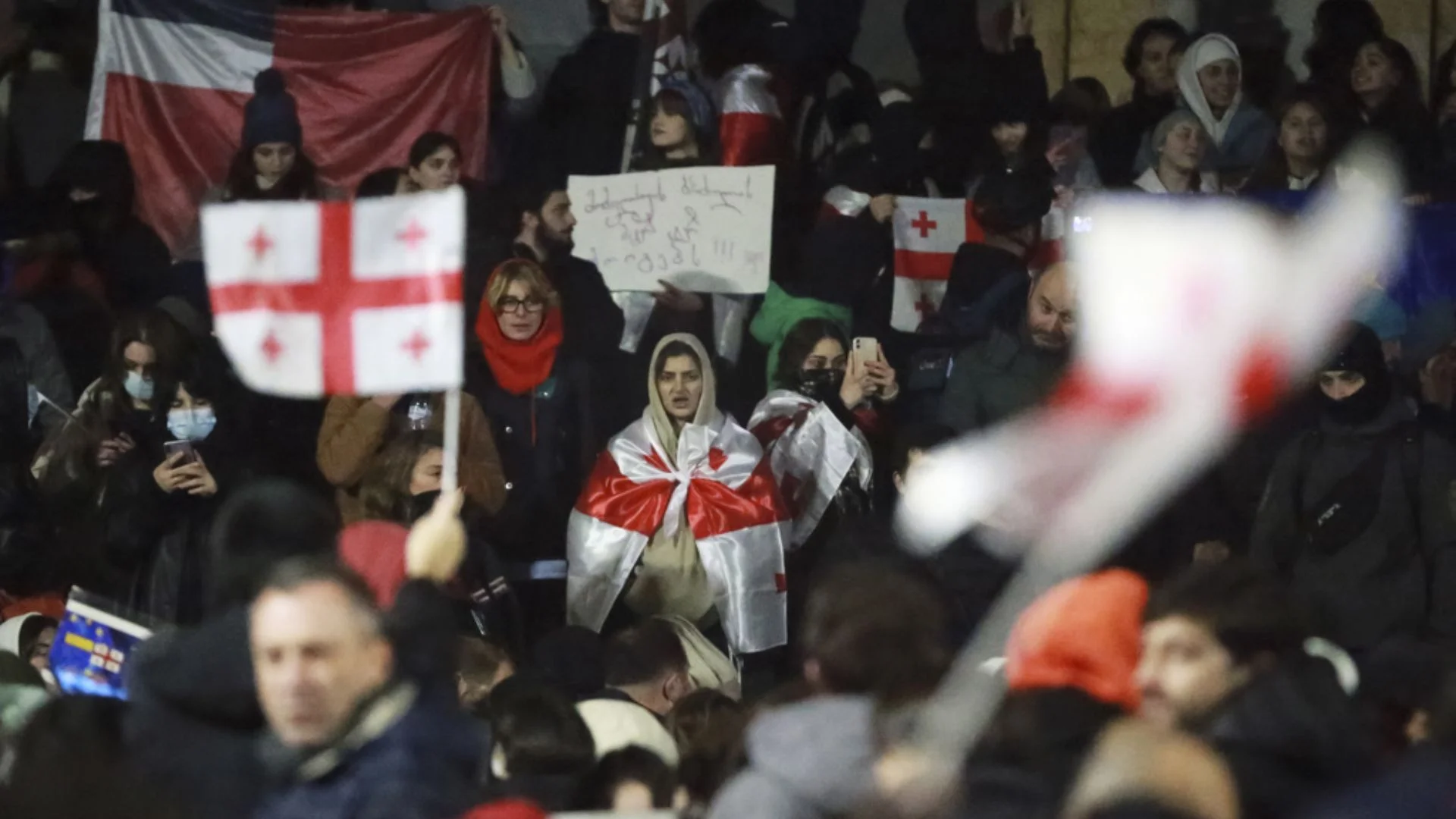Georgian police arrested opposition leader Zurab Japaridze early Monday following a fourth night of anti-government protests in Tbilisi. Demonstrators rallied against the government’s recent decision to suspend EU membership talks, a move critics see as a pivot towards Russia.
Japaridze, a leader of the Coalition for Change, was taken by masked officers in an unmarked vehicle, according to footage shared online. His arrest follows clashes between protesters and police, who used water cannons and tear gas to disperse crowds gathered on Rustaveli Avenue. The interior ministry reported 21 police officers injured overnight, with 113 hurt since the protests began.
US and EU have expressed concern over what they view as Georgia’s democratic backsliding. Pro-EU President Salome Zourabichvili, who supports the protests, described the unrest as a “revolt of an entire country.” She also criticized police for excessive force, highlighting injuries sustained by those detained.
The ruling Georgian Dream party denies any pro-Russian shift, insisting it is safeguarding national sovereignty. Prime Minister Irakli Kobakhidze accused the opposition of orchestrating violence to overthrow the government.
Tensions have been building in Georgia amid controversial legislation on “foreign agents” and LGBTQ+ rights. The suspension of EU talks has triggered widespread discontent, with hundreds of civil servants and diplomats signing open letters of protest. Several Georgian ambassadors have resigned in response.
Prominent figures, including martial artist Ilia Topuria, have joined the outcry. In an Instagram post, Topuria condemned the government’s decision, expressing shame over the treatment of young protesters.
Zourabichvili, whose term as president ends this month, refuses to step down, arguing that the parliament electing her successor is illegitimate due to alleged election rigging. The government maintains the vote was fair, with the prime minister urging Zourabichvili to vacate her office.
As the standoff continues, international observers remain alarmed by Georgia’s trajectory, warning of further instability in the region.























